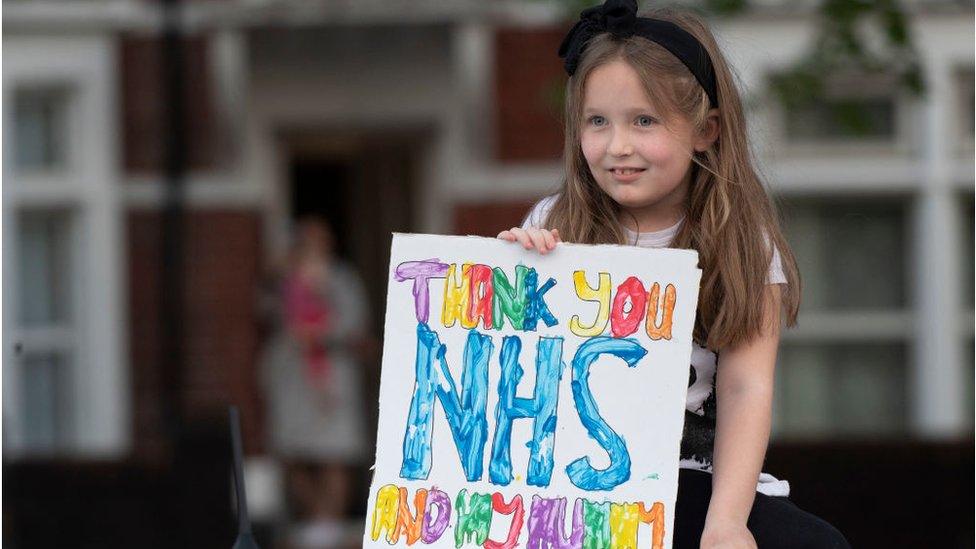Five ways the pandemic has affected kids worldwide
- Published
- comments
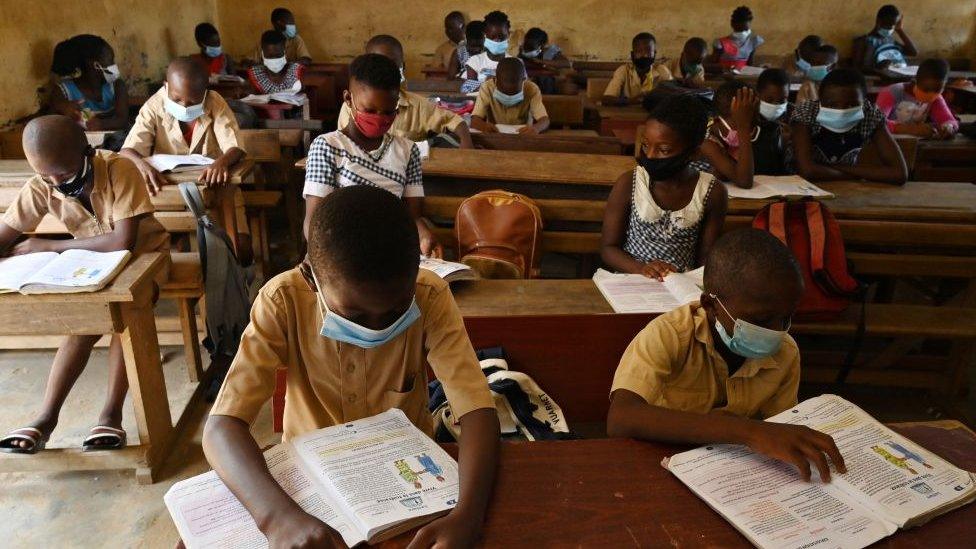
Today marks a year since the World Health Organisation (WHO) declared a Covid-19 pandemic.
A pandemic is when an infectious disease spreads easily from person to person in lots of parts of the world.
In the last twelve months the world has changed dramatically as people have been forced to change the way they live their lives through lockdowns, social distancing, wearing masks and home schooling.
Many children have spent much more time at home with their families and have had to learn new ways to have fun, keep in contact with friends and stay healthy.
Here are five ways the Covid-19 pandemic has affected children globally.
Education
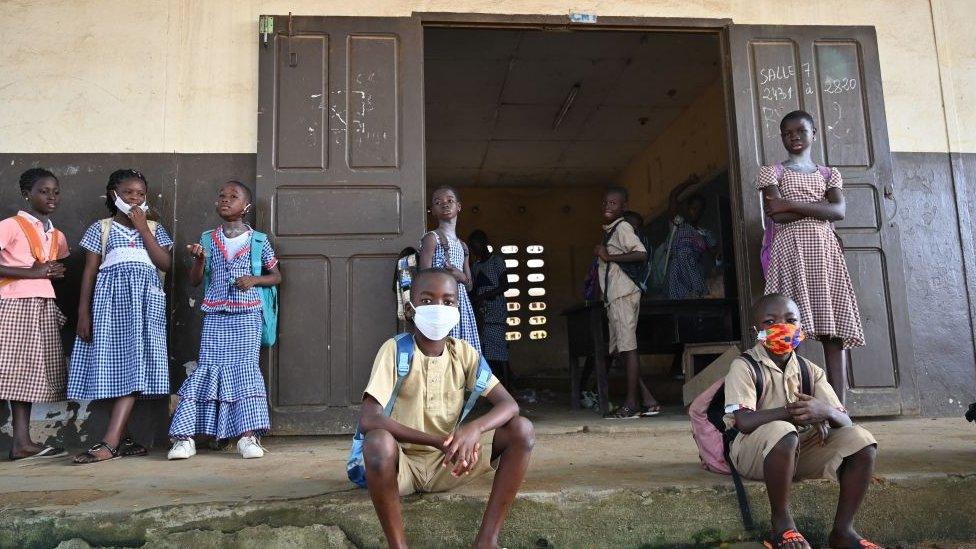
In poorer countries where there isn't widespread access to computer technology, going to school is essential for the child development
All over the world, governments have brought in lockdowns to stop the spread of coronavirus in their populations.
This has meant that schools have had to shut their doors to the majority of children, and learning has had to go online.
According to children's charity Unicef, 188 countries have had to close their schools during the pandemic, affecting more than 1.6 billion children.
Children's learning has been particularly affected in poorer countries where children don't have access to computers.
Unicef research suggests that at least 463 million - or 31 percent - of schoolchildren worldwide cannot be reached by digital and broadcast remote learning programmes.
There are therefore worries about the long term development of a lot of children in less economically developed areas.
Even in more developed countries some children have not had access to the technology needed for online learning which has led to worries that they could fall behind.
Unicef has said that, in the past, school closures in poorer countries have led to an increase in child marriages and children working before they're legally allowed to by law.
Communicating online
WATCH: Newsround spoke to tech expert David McClelland who told us some quick and simple things you can do to keep your video calls safe
Lockdown has also meant that children all over the world haven't been able to physically see their friends and family, especially older relatives who are more vulnerable to the virus.
But lots of people have been able to rely on communication through video call software and companies providing that service have grown significantly during the pandemic.
Video call company, Zoom, claimed that in the month following the first lockdown, its service had been downloaded by more than 200 million people.
By the end of 2020, almost 500 million people had downloaded Zoom, and it was the 5th most downloaded app in the world.
As more and more teachers relied on online learning to keep in touch with their pupils, companies like Microsoft saw their video call software used by more than 115 million people every day by the end of 2020.
Google Classroom has also been used by lots of schools for online learning.
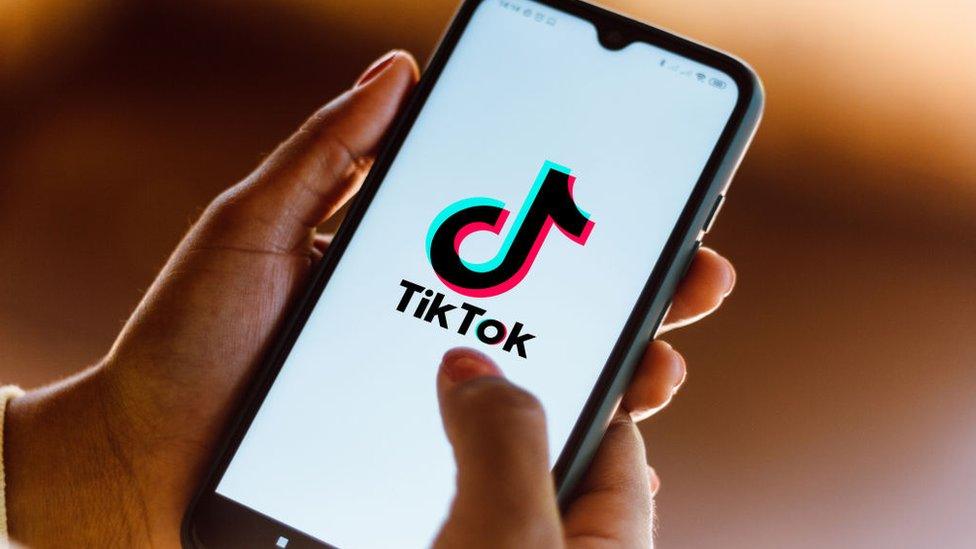
TikTok has become a popular way for kids to stay connected
Between the start of the pandemic and now, video sharing platform TikTok has become the most downloaded app in the world and is estimated to have more than a billion active users.
Popstars have had to communicate with their fans in different ways during the pandemic too with Justin Bieber holding a virtual concert on TikTok and Lil Nas X on Roblox.
Raising money and awareness
Marcus Rashford on reversing the government's food voucher decision
Lots of people have raised money for charity or campaigned for change during the last year.
Manchester United footballer, Marcus Rashford argued against the government's decision not to provide free school meal vouchers for children living in poverty during school holidays.
His intervention - which was backed by millions of fans online - led to Prime Minister Boris Johnson, changing his mind on the decision and gave hundreds of thousands of children access to meals they otherwise wouldn't have had.
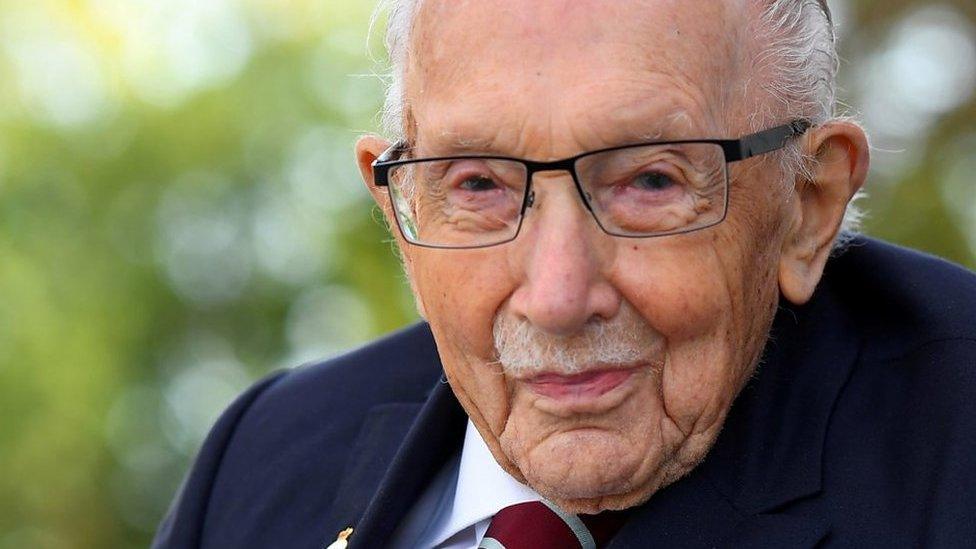
War veteran Captain Tom Moore decided to raise money for the NHS during the pandemic by walking 100 laps of his garden before his 100th birthday.
He raised more than £32 million with the help of donations from the public and was knighted by the Queen for his efforts.
His work inspired children all over the world to offer their help to people in need.
For example, six-year-old Tony was given a Gold Badge by Blue Peter earlier this month after raising more than £1.6 million for a local children's hospital, despite only learning to walk a year earlier.
Grief and loneliness
Coping with grief: 'You're not on your own and you are loved'
More than 2.6 million people around the world have died from coronavirus since the beginning of the pandemic.
This has meant that lots of families have had to deal with loss in a short period of time.
Newsround spoke with Dr Radha to talk about how to deal with grief if you have lost someone you loved.
Children have also suffered from not seeing their friends or doing their usual activities and this has had an impact on their physical and mental health.
Adapting and resilience
There have also been lots of examples of where children have come up with creative ways to keep in touch and stay healthy and have tried to raise the spirits of people all over the world through their actions.
In March 2020, children all over the United Kingdom, made rainbows to put in their windows to spread joy and symbolise hope.
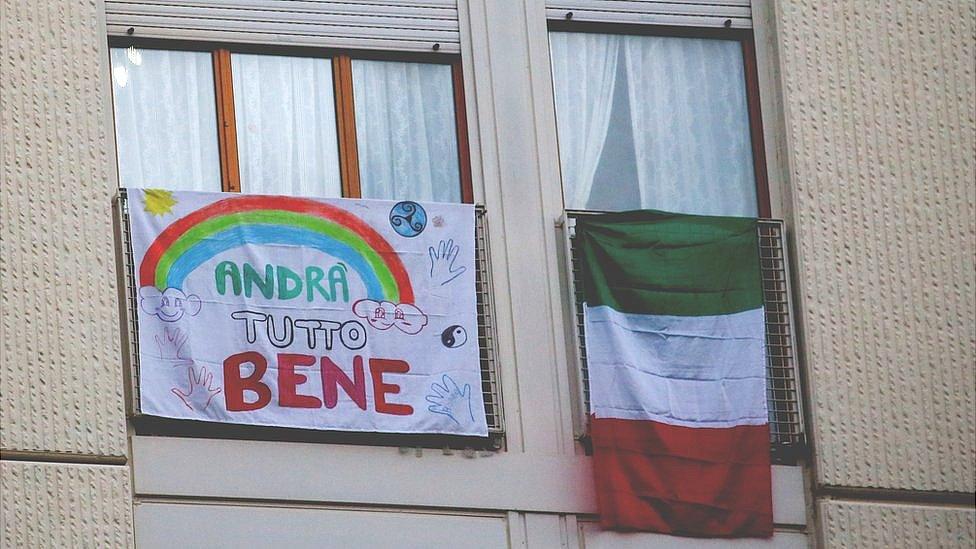
In Italy the message andrà tutto bene which means everything will be fine is being shared
The idea was started by a group called "Chase the Rainbow" who wanted people to be able to go rainbow spotting on their daily walks.
The movement spread all over the world with rainbows spotted in the United States, Canada and Spain.
- Published28 April 2020
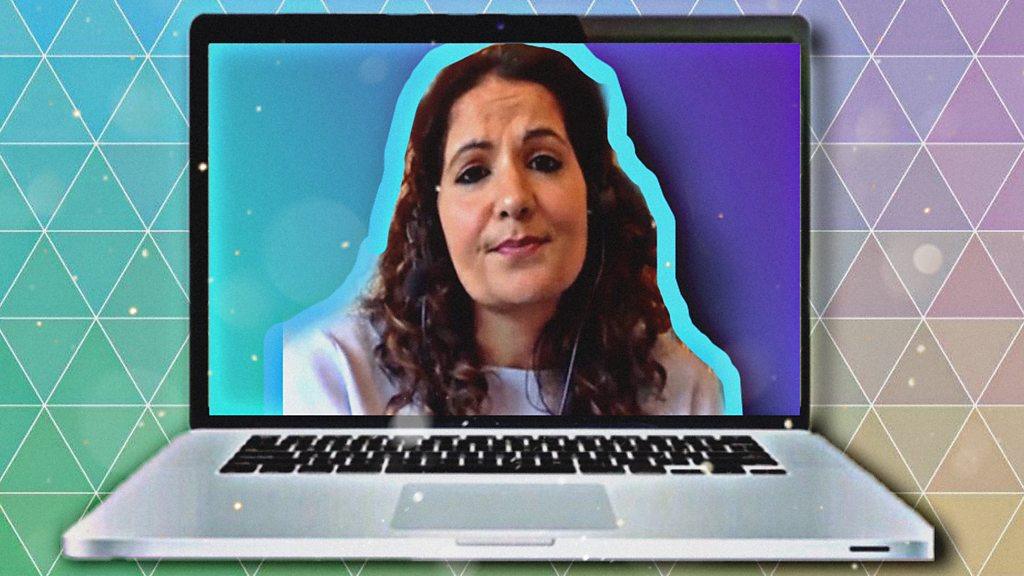
- Published5 January 2021
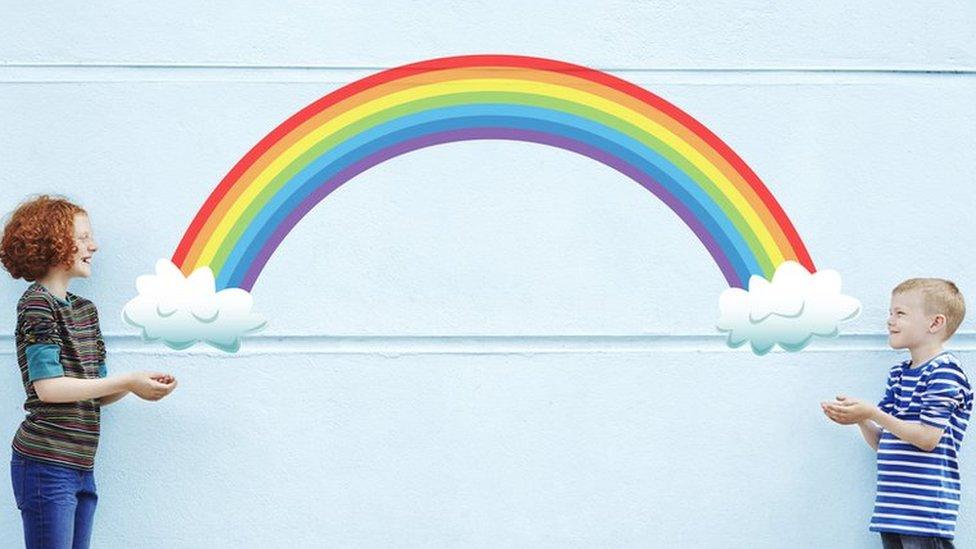
- Published7 June 2021
